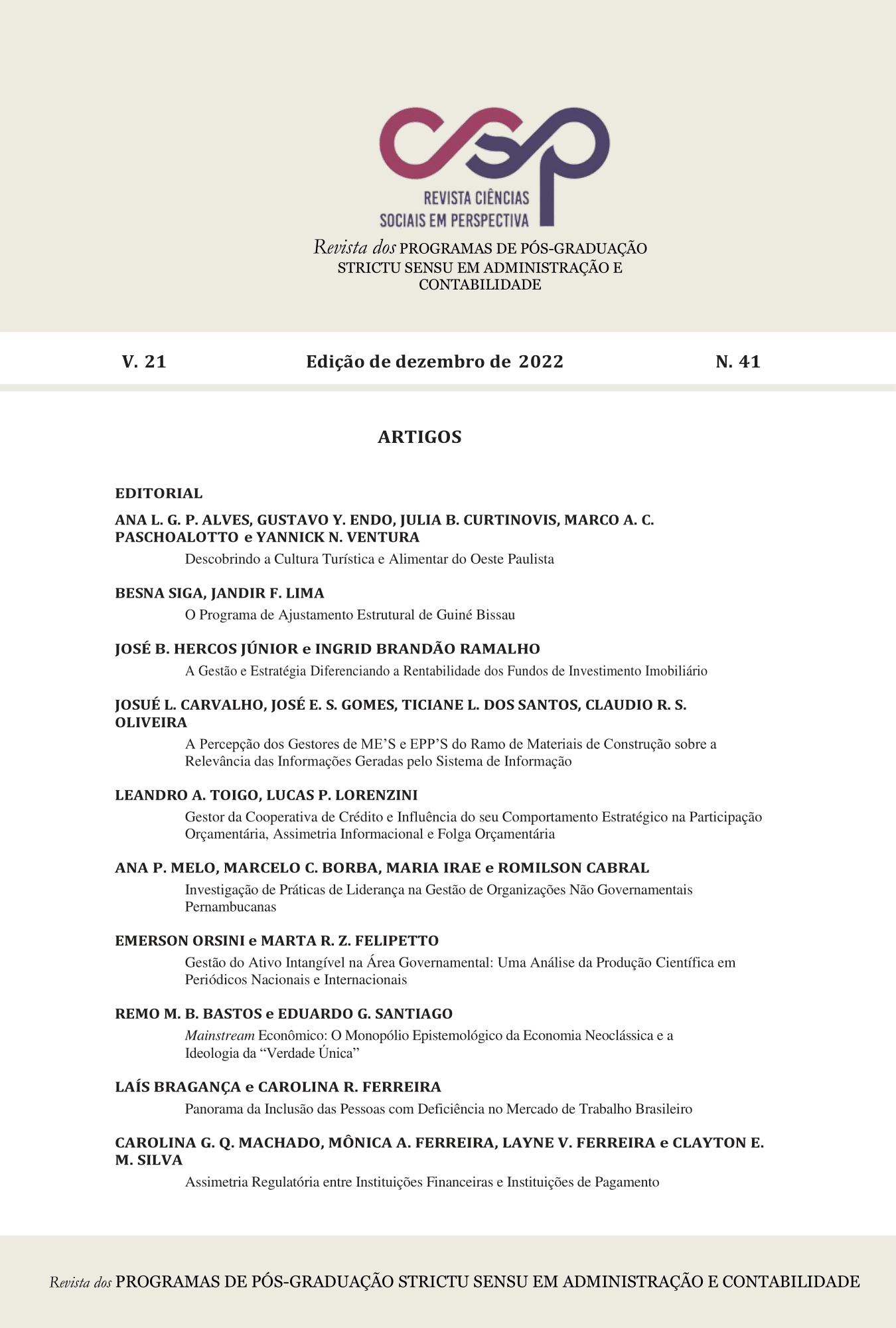Mainstream econômico
o monopólio epistemológico da economia neoclássica e a ideologia da “verdade única”
DOI:
https://doi.org/10.48075/revistacsp.v21i41.30405Resumo
O objetivo do presente artigo consiste em examinar, à luz da Sociologia Econômica, a persistente hegemonia midiática, acadêmica e cultural do paradigma neoclássico da ciência econômica, em detrimento da pluralidade de concepções teóricas e metodológicas que poderiam fazer parte do rol de opções a serem analisadas e avaliadas pelas sociedades contemporâneas com vistas a enfrentar seus problemas sociais, econômicos e ambientais. No que respeita à metodologia, adotou-se uma abordagem qualitativa, fazendo-se uso de pesquisa bibliográfica e documental. A título de conclusão, aferiu-se que a economia neoclássica, com a sua modelagem econométrica, tem servido preferencialmente para fundamentar o receituário neoliberal que rege as políticas econômicas da maioria dos países, razão pela qual é perceptível a insatisfação crescente em universidades, institutos de pesquisas e até em instituições internacionais de desenvolvimento em relação ao credo ortodoxo e ao estéril formalismo neoclássico.
Downloads
Downloads
Publicado
Como Citar
Edição
Seção
Licença

Este trabalho está licenciado sob uma licença Creative Commons Attribution-NonCommercial-ShareAlike 4.0 International License.
Aviso de Direito Autoral Creative Commons
Política para Periódicos de Acesso Livre
Autores que publicam nesta revista concordam com os seguintes termos:
1. Autores mantém os direitos autorais e concedem à revista o direito de primeira publicação, com o trabalho simultaneamente licenciado sob a Licença Creative Commons Attribution que permite o compartilhamento do trabalho com reconhecimento da autoria e publicação inicial nesta revista.2. Autores têm autorização para assumir contratos adicionais separadamente, para distribuição não-exclusiva da versão do trabalho publicada nesta revista (ex.: publicar em repositório institucional ou como capítulo de livro), com reconhecimento de autoria e publicação inicial nesta revista.
3. Autores têm permissão e são estimulados a publicar e distribuir seu trabalho online (ex.: em repositórios institucionais ou na sua página pessoal) a qualquer ponto antes ou durante o processo editorial, já que isso pode gerar alterações produtivas, bem como aumentar o impacto e a citação do trabalho publicado (Veja O Efeito do Acesso Livre).
Licença Creative Commons
Esta obra está licenciada com uma Licença Creative Commons Atribuição-NãoComercial-CompartilhaIgual 4.0 Internacional, o que permite compartilhar, copiar, distribuir, exibir, reproduzir, a totalidade ou partes desde que não tenha objetivo comercial e sejam citados os autores e a fonte.





